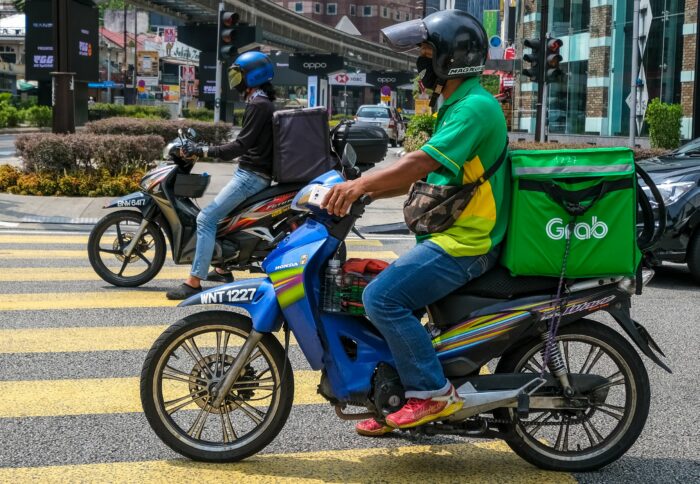Gig economy framework proposed in Malaysia

The government has been urged to develop a gig economy framework or high-value partnerships to ensure that gig workers receive appropriate guidance.
Productivity can be key tool to boost wages in Australia

Instead of multi-employer bargaining, the Australian government has been urged to increase productivity to raise wages.
How to create HR sustainability at workplaces

As organisations face challenges in retaining talent, the Good Work Framework by the World Economic Forum provides strategies to overcome these issues.
Managers uncertain over productivity of remote employees

With hybrid and remote work continuing, managers are developing “productivity paranoia”, leading to efforts of spying on their staff.
Malaysia prepares private sectors workers for retirement

A social safety net for private sector workers after 60 has been proposed by Malaysia’s Human Resources Minister Datuk Seri M Saravanan.
More firms in Japan rethink employee transfer policies

The prevalence of remote work is making companies in Japan revamp or revise their employee transfer systems.
WFH to create more new jobs in the Philippines

By 2028, work-from-home (WFH) and hybrid work arrangements will create 1.1 million new jobs and generate billions more in revenue in the Philippines.
Future of work relies on talent networks and continuous learning

To support lifelong learning, employers, workers, institutions, and students in Singapore are encouraged to adopt new mindsets and roles.
The Philippines approves freelance workers protection bill

House Bill 615, also known as the Freelance Workers Protection Act, was unanimously adopted by the House labour and employment committee.
Australia moves to improve female workforce participation

Australian Prime Minister Anthony Albanese has been urged to focus on paid parental leave and pension entitlements.
Australia considers implementation of four-day workweek

A labour union is calling on the government to axe the standard five-day workweek to boost productivity and employee wellbeing.
New guidelines established in the Philippines to address WFH concerns

The Department of Labour and Employment has signed an order that more clearly defines WFH workplaces and the work performed by employees.
Japan plans to review law to protect freelancers

A bill that aims to provide more protection to freelance workers will be submitted to Japan’s parliament this autumn.
Indonesia prioritises more inclusive workplaces

Ensuring workers’ rights is key to building inclusive and safe work environments in a recovering world of work, says Vice President Ma’ruf Amin.
Firms in Japan consider cashless payment of salaries

By the next fiscal year, companies may be allowed to digitally pay their employees’ wages to their cashless accounts.
Employers in Malaysia urged to support employee training

Employers should shoulder the responsibility of ensuring that their workers are given ample training to improve their skills, says trade union.
Is Singapore ready for a 4-day workweek?

Employers and employees should adopt a “flexible mindset” on a four-day workweek, said Gan Siow Huang, Minister of State in the Manpower Ministry.
70:30 hybrid work model proposed in the Philippines

A 70:30 hybrid work ratio (70% onsite and 30% work-from-home) has been recommended to the government to sustain economic recovery.
Singapore amends job ad rule to streamline recruitment process

The government has reduced the job advertising duration under the Fair Consideration Framework (FCF) from four to two weeks.
The Philippines faces loss of IT talent if WFH scrapped

Employees of IT and business process management (IT-BPM) firms may resign if the government pushes for a return to 100% on-site work.
Companies in India urged to prioritise employee health and wellbeing

Although 80% of the workforce has reported mental health issues over the past year, only around 30% of the affected have taken steps to manage symptoms.
Thailand considers abolishment of daily employment

An amendment to the Labour Protection Act has been proposed to abolish temporary and daily employment and upgrading the status of workers.
Companies in India use promotions to retain staff

At a time of talent shortage, several companies are giving off-cycle promotions to eligible employees as they attempt to hold on to experienced staff.
Taiwan officially approves minimum wage raise

Taking effect from January 1 next year, the monthly minimum wage will be raised to NT$26,400 (US$855) and the basic hourly rate to NT$176 (US$5.7).
Building workplace resilience across the organisation

Sleep, fulfilment, bounce, relaxation, and focus are the five critical factors needed to strengthen workplace resilience.
Employers in India choose ‘3 days a week in office’ schedule

Hybrid working continues to be the most preferred workspace strategy in India, with 63% of the firms currently adopting this practice.
Employment Act implementation set for further delay in Malaysia

The Federation of Malaysian Manufacturers (FMM) is considering requesting another deferral of the implementation of the amended Employment Act.
Job hopping declines in Japan despite stagnant wages

Since 2021, the number of workers switching jobs dropped 310,000 to 2.9 million, marking a fall for the second consecutive year.
Gen Zs in Singapore plan to relocate for work

An ADP report found over 51% of workers aged between 18–24, and 43% between the ages of 24–34, have planned or considered relocation for their jobs.
Big businesses in South Korea hold off hiring plans

Six out of 10 big businesses in South Korea either have no hiring plans or have yet to finalise them for the rest of 2022.
